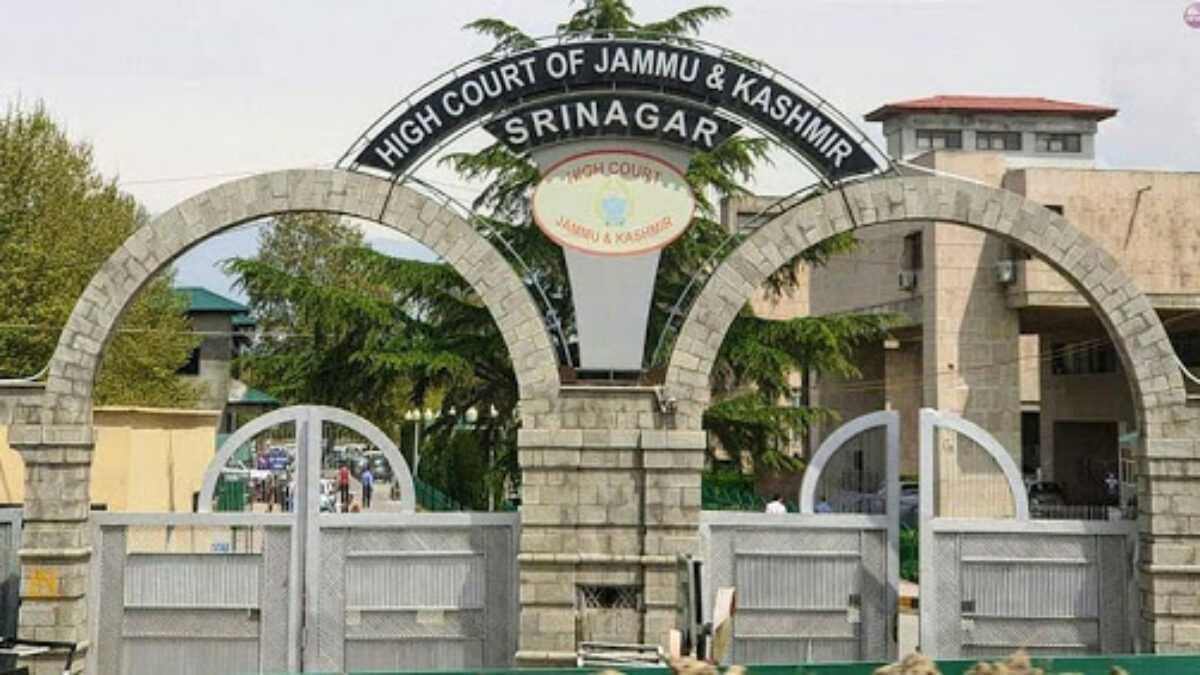
J&K High Court Upholds Detention Linked to LeT Case, Stresses Constitutional Courts Must Respect Preventive Laws
Court says preventive detention is valid tool to safeguard national security and public order
Detention of Shaista Maqbool, alleged associate of LeT terrorist, upheld despite legal challenge
By Our Legal Correspondent
New Delhi: November 14, 2025:
In a significant ruling, the Jammu & Kashmir and Ladakh High Court have upheld the preventive detention of Shaista Maqbool, who was alleged to be closely associated with a Lashkar-e-Taiba (LeT) terrorist. The Court emphasized that constitutional courts cannot lightly interfere with preventive detention orders, especially when such measures are invoked to protect national security and maintain public order.
Also Read: Allahabad High Court Calls Cybercrime a ‘Silent Virus’, Denies Bail in Fake GST Transaction Case
This judgment highlights the delicate balance between individual liberty and collective security, reaffirming the principle that preventive detention laws, though exceptional, remain constitutional when applied in cases involving terrorism and threats to public safety.
Background of the Case
The case arose after authorities detained Shaista Maqbool under preventive detention laws, citing her alleged involvement with a LeT terrorist. The detention order was challenged before the High Court, with the petitioner arguing that her fundamental rights were violated and that the detention was arbitrary.
The Union Territory of Jammu & Kashmir defended the detention, stating that her association with a terrorist posed a serious threat to public order and national security.
Court’s Observations
- Preventive detention is constitutional: The Court reiterated that preventive detention laws are recognized under the Constitution of India, though they must be applied cautiously.
- National security priority: When allegations involve links to terrorist organizations, courts must give precedence to national security over individual liberty.
- Judicial restraint: Constitutional courts should not substitute their judgment for that of the detaining authority unless there is clear evidence of mala fide or procedural violation.
- Detention upheld: The Court found no procedural irregularity and upheld the detention order against Shaista Maqbool.
Also Read: Delhi High Court Slams Income Tax Department for 3-Year Delay, Orders Refund with Interest
Why This Judgment Matters
- Clarifies scope of preventive detention: It reinforces that preventive detention remains a valid tool in combating terrorism.
- Strengthens national security framework: Courts recognize the importance of preventive measures in safeguarding public order.
- Sets precedent for future cases: The judgment will guide lower courts in handling similar challenges to detention orders.
- Balances liberty and security: It underscores the constitutional balance between protecting individual rights and ensuring collective safety.
Impact on Stakeholders
Also Read: Delhi High Court Ends 38-Year-Old Will Dispute, Upholds Validity of Testamentary Document
- For law enforcement: The ruling strengthens their ability to use preventive detention against individuals suspected of aiding terrorism.
- For detainees: It highlights the limited scope of judicial review in preventive detention cases, making it harder to challenge such orders.
- For the judiciary: The judgment reaffirms judicial restraint in matters involving national security.
Legal Context
Preventive detention laws in India, including the Public Safety Act (PSA) in Jammu & Kashmir, allow authorities to detain individuals to prevent them from acting in ways that threaten public order or national security.
While preventive detention is controversial, the Constitution permits it under strict safeguards. Courts have consistently held that such laws must be used sparingly but remain valid in cases involving terrorism and organized crime.
Expert Reactions
- National security lawyers argue that the judgment strengthens the fight against terrorism.
- Civil liberties advocate caution that preventive detention must not become a tool for arbitrary state action.
- Policy analysts highlight that the ruling underscores the need for balancing liberty with security in conflict-prone regions.
Broader Implications
Also Read: ITAT Bangalore Rules Mango Orchard Income as Agricultural, Quashes ₹1.2 Crore Tax Addition
- Counter-terrorism efforts: Authorities may feel more confident in using preventive detention against suspected terror associates.
- Civil liberties debate: The judgment may reignite discussions about the limits of preventive detention in a democratic society.
- Judicial precedent: Future cases involving alleged terror links will likely rely on this ruling for guidance.
Conclusion
Also Read: Bombay High Court Bars ‘The New Indian Express’ from Using Trademark Outside South India
The Jammu & Kashmir and Ladakh High Court’s ruling upholding the detention of Shaista Maqbool is a landmark in preventive detention jurisprudence. By stressing that constitutional courts must respect the framework of preventive laws in cases involving terrorism, the Court has reinforced the primacy of national security and public order.
This judgment will serve as a precedent, shaping the balance between individual liberty and collective safety in India’s ongoing fight against terrorism.
🔑 Suggested Keywords for SEO & Faster Searches
- J&K High Court preventive detention ruling
- Shaista Maqbool detention case
- Lashkar-e-Taiba associate detention India
- Preventive detention constitutional courts India
- Jammu Kashmir Public Safety Act judgment
- High Court ruling on terrorism detention
- National security vs civil liberties India
- Preventive detention law India
- J&K High Court terrorism case
- Constitutional courts preventive detention India
Also Read: Supreme Court: Tenants Must Pay Rent Despite Pending Appeal, No Relief Without Stay Order